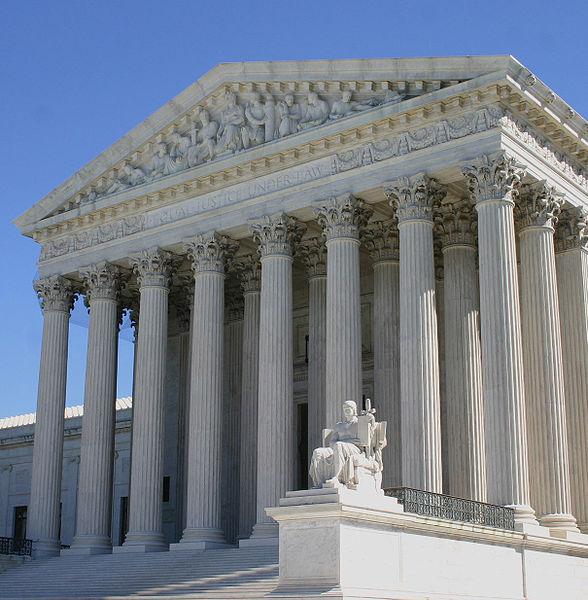All eyes still on U.S. Supreme Court as Arizona awaits judgment on immigration law
As the U.S. Supreme Court considers the third and final part of President Barack Obama’s healthcare reform act, some legal scholars are warning a decision to overturn here could have dire consequences for countless other federal programs. (Photo by d
The U.S. Supreme Court is expected to rule any time now on the constitutionality of Arizona’s controversial immigration law.
The law forces local law enforcement to question people stopped for minor offenses like traffic stops about their immigration status. The law was put on hold by the courts while it was reviewed.
Some have speculated that parts of the law may be upheld, with other parts of it being struck down, rather than the entire law being accepted or rejected.
Alia Beard Rau, Arizona Republic immigration reporter, said law enforcement in Arizona have begun to take steps to prepare in case the law should be upheld. Gov. Jan Brewer required all officers to receive training on implementing the law, starting last Thursday, she said.
“There have been a lot of efforts on both sides to keep everybody calm,” Rau said. “There will probably be a little bit of delay when everything goes into effect” — if parts or all of the law are upheld.
Other states are also watching the Supreme Court, because they also modeled their immigration law’s after Arizona’s.
Key parts of the law include the requirement that local law enforcement question people about their immigration status, requirements that immigrants carry their papers with them at all times, another provision that allows for warrantless arrest, as well as a component that makes it a crime to work in Arizona as an illegal immigrant.
The decision last week by President Barack Obama to allow certain classes of young illegal immigrants to remain in the United States indefinitely will have an interesting effect on this particular law as well, depending on how the Supreme Court decides, Rau said.
The provision to allow illegal immigrants brought to the United States by their parents before they turned 16, and still less than 30 as of today, would give them the sort of papers they need to comply with that section of Arizona law.
Rau said emotions are running high all over the board in Arizona right now.
“You definitely have people very concerned on both sides of the issue,” she said. “But, I think, honestly, you probably have a really big portion of the population right there in the middle.”
Undocumented immigrants are here, and Rau thinks some people support them working, but worry about them committing crimes at the same time.
“I think there are a lot of people in the middle waiting to see what (the decision) will actually look like,” Rau said.
The Supreme Court didn’t rule Monday and has just two weeks until its summer break — and a ruling is absolutely expected before that time. The next opportunity for a ruling is Thursday.
